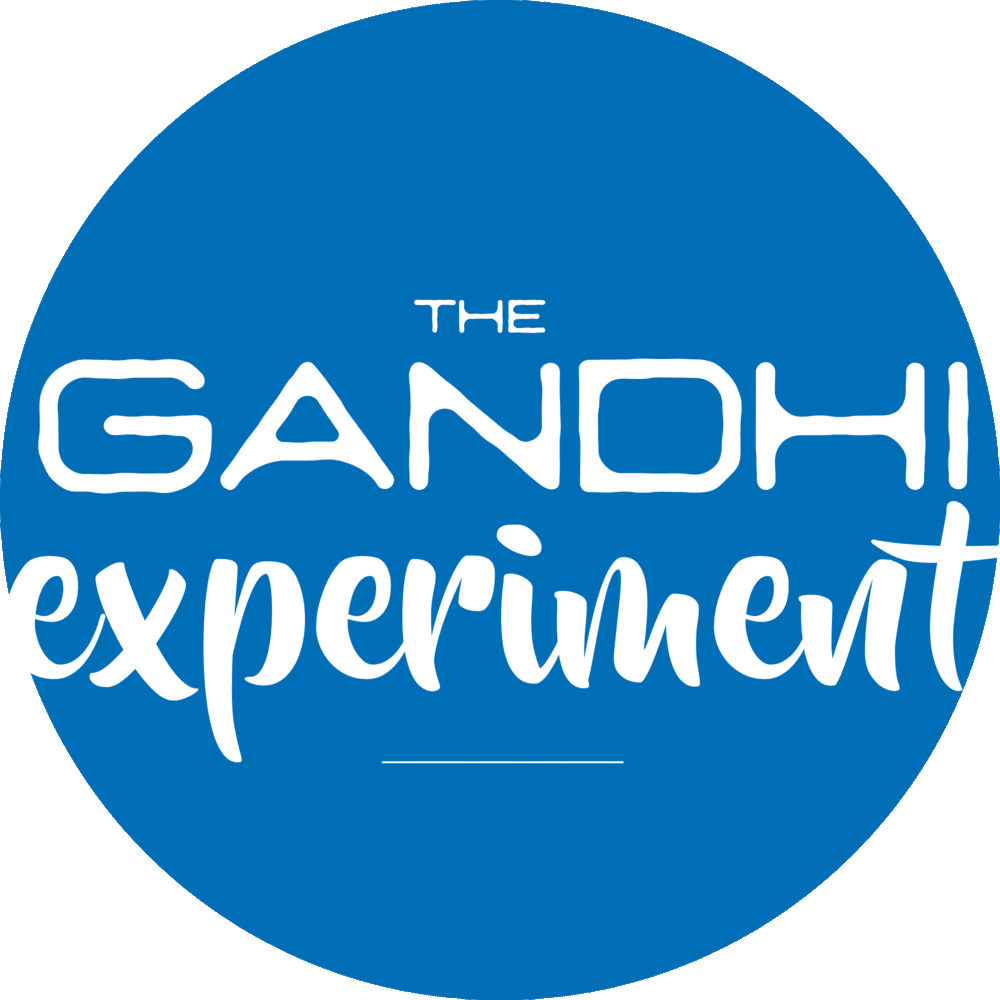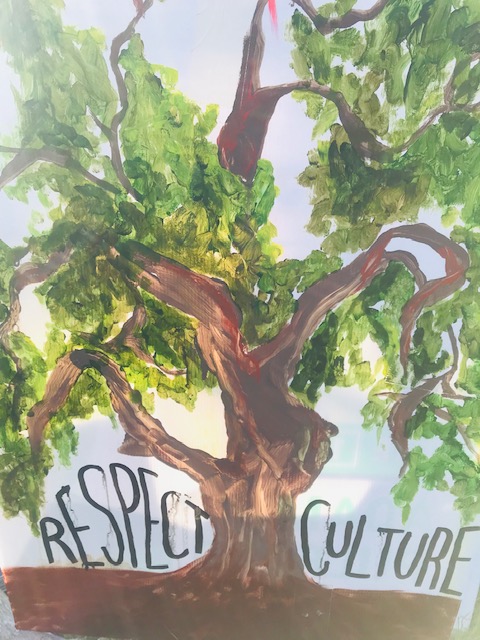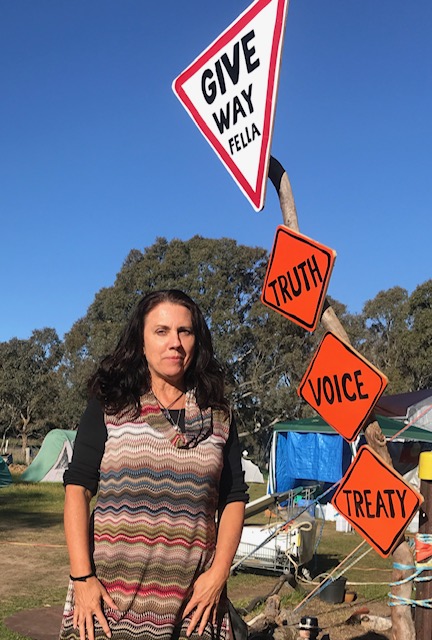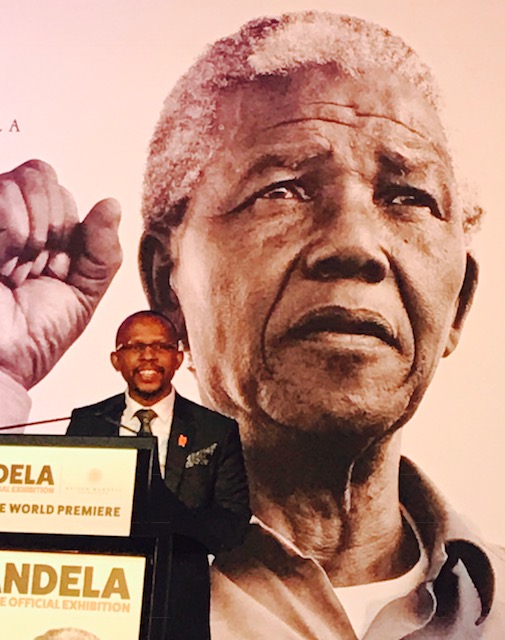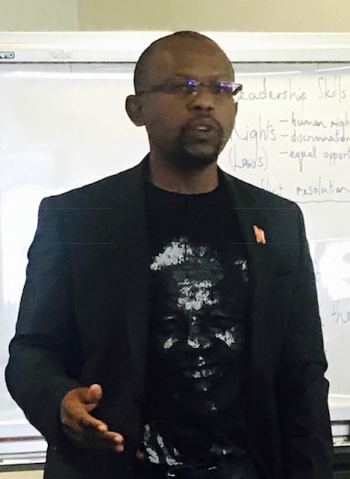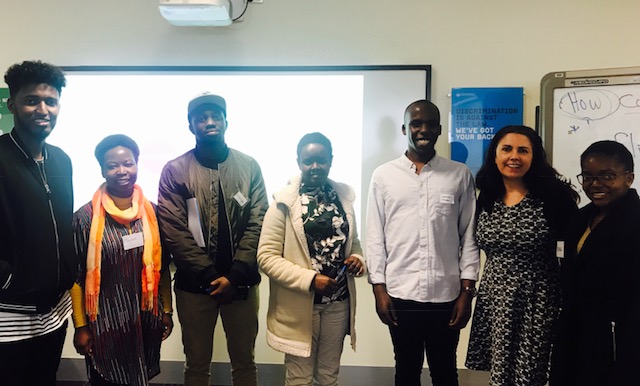At the Djab Wurrung Heritage Protection Embassy they ask you not to take photos of the sacred trees. Here, instead, is an artist’s impression.
This post is written in response to the Australian government’s plans to cut down 3000 trees, including 250 sacred and old-growth trees, to build a stretch of ‘duplicate highway’ on the Western Highway, Victoria, Australia.
4 September, 2019
Yesterday I heard the voices of truth speak at the peaceful protest camp of the Djab Wurrung Heritage Protection Embassy.
As I drove down the Western Highway, nearing the camp site, I could see a small group of casually dressed people engaged in earnest discussion with another group clearly defined by their fluoro-Visy vests, trucks behind them, at the ready. VicRoads.
What happened next is the power of peaceful protest. The ability to remain calm and explain facts. To everyone’s credit, this calmness pervaded on both sides. Finally, it was when one of the women supporting the Djab Wurrung protest pointed out, ‘You haven’t done your due diligence,’ that the group in Visy vests moved away.
The trees were safe for another day.
It seems that well-informed protester is right. Due diligence has not been done. It has been well reported both in The Age and other sources, that a 128 page report citing the importance of the cultural heritage of this area has been overlooked and disregarded by the Federal Government who approved the stretch of ‘Duplicate Highway’ set to remove 3000 trees, including 250 sacred trees and old-growth trees 600-800 years old.
Later that same day I heard Aunty Sandra, a Djab Wurrung Elder, being interviewed by the ABC. Again, calmly explaining the sacred cultural relevance of this area. She spoke of the sheer frustration that the government has not chosen an alternative route that is cheaper and does less damage. A former VicRoads adviser has openly stated, the current marked route can be avoided.
How many times has Aunty Sandra had to explain this? Over and over and over? How many times will it take before they listen? And yet somehow she maintains her dignity.
Calmness has a pervasive power. It is through calmness and stillness that the voice of truth can be heard.
That is not to say anger does not have its place. We are angry at what is going on. We are angry that something that seems so obvious was ever put forward in the first place. We are angry that given a new set of facts, given viable alternatives, the government still seems hell-bent on cutting down these 800 year old trees, destroying nature and culture. An environmental threat and a sign of an ongoing cultural invasion.
Yet anger does not need to translate to violence. This is what I teach my students - it’s ok to be angry. It’s your subsequent actions and behaviour – how you handle yourself- that counts.
If we look to the past, Gandhi, Martin Luther King Jnr – social activists who never caved into violence. They utilised ahimsa – respect for all living things and avoidance of violence towards others – to achieve the seemingly unachievable. Nelson Mandela moved from a more violent stance to an understanding of the power of non-violence, realising the truth at its core.
Back at the Djab Wurrung Heritage Protection Embassy, out there on the Western Highway, Victoria, it’s not over yet. Pressure needs to be applied. Go to https://www.facebook.com/Dwembassy/ to find out how you can call / email / write a letter to the relevant ministers to put a stop to this needless action.
Come and visit the Djab Wurrung peaceful protest camp and help maintain that crucially needed presence.
The camp maintains a calm presence to ensure these trees live.
Truth – Voice – Treaty
If you would like to know more about this issue, a very comprehensive article written by Sophie Cunningham, author of City of Trees: Essays on Life, Death and the Need for a Forest, can be found here: https://www.themonthly.com.au/issue/2019/july/1561989600/sophie-cunningham/djab-wurrung-birthing-tree
